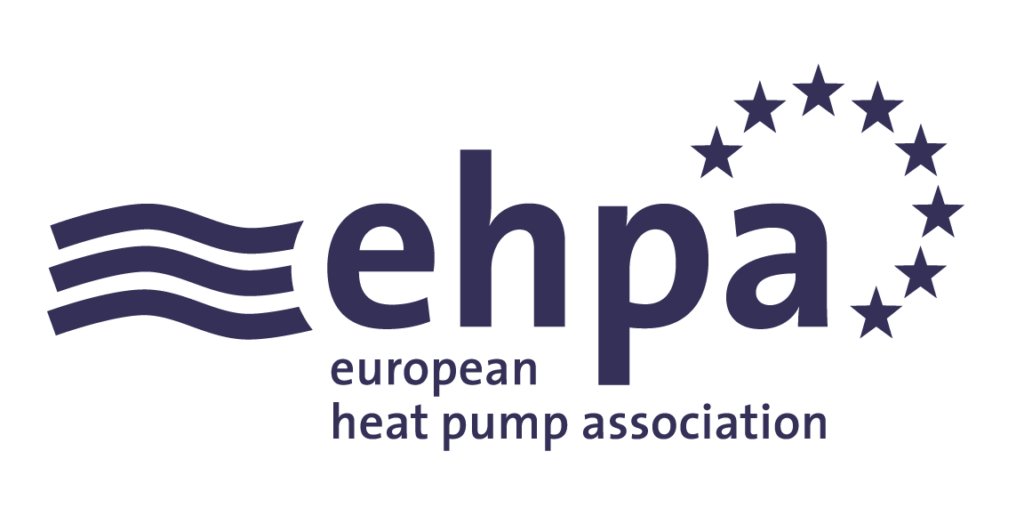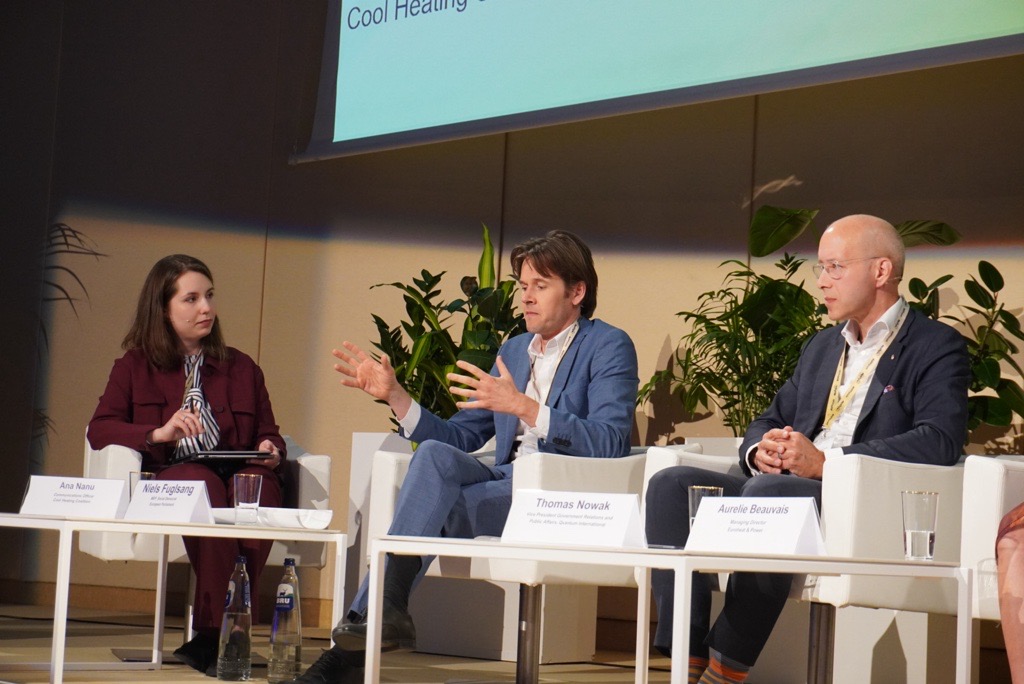How can Europe ensure its energy security while reducing reliance on fossil fuels? What role can heat pumps play in strengthening industrial competitiveness, integrating with grids and district heating, and keeping energy affordable for households and businesses? How can misinformation about clean heating be addressed?
Huge questions – but just some of those addressed across the eight sessions of this year’s Heat Pump Forum on 23-24 September, by speakers from the EU institutions, media, thinktanks, industry, finance communities and more.
Some of the main takeaways? That to meet the EU’s 2030 ambition of 60 million installed heat pumps, around 28,000 should be installed every working day – about three times more than the rate in 2024. Ramping up is critical for ensuring our energy security as Europe edges away from imported gas and all fossil fuels.
We can increase heat pump sales and meet the targets by better using levers like tax: currently eight of the 17 European countries EHPA investigated tax electricity several times more than they do tax. This makes electricity more expensive and electrically-driven heat pumps less competitive. The worst culprits are Poland (seven times higher) and Belgium (over six). Making tax levels fairer will encourage the uptake of heat pumps.
Another key financial tool is the upcoming Emissions Trading System 2, which will put a price on carbon dioxide emissions from buildings and road transport in the EU. This is expected to generate between €340 and €570 billion for governments by 2032. A portion of this – €87 billion – will go into the Social Climate Fund, designed to help vulnerable households manage the transition to cleaner heating and transport.
These funds must be spent effectively, we heard – not on prolonging fossil fuel use but on future-proof investments like energy-efficient building renovations and the rollout of clean technologies. Direct support to low-income households is essential, but it should enable people to switch away from polluting systems, not lock them in.
Discussions also pinpointed that a strong business case is vital, and can come through stable policy frameworks and electricity prices. This includes the newer sector of industrial heat pumps, which can help decarbonise sectors which currently use 30% gas. The specific example of Germany was dived into, where politicisation of a heating law led to a backlash and sales that are not growing steadily.
Installers emerged as a key group the heat pump sector must engage with. Firstly, in terms of ensuring skills levels and training, encouraging schemes whereby – for example – plumbers can take the time to retrain as a heat pump installer without losing income. Secondly, communicating to them and enabling them to become ambassadors for heat pumps, as they are often those who most influence a consumer’s choice of heating system.
Communication was a repeated priority, especially communicating on heat pumps in a clear way which does not leave an information vacuum that risks being filled by fake news. Using stories and encouraging an connection with heat pumps as part of one’s identity can also overcome the risk of disinformation spreading.
Often called the ‘backbone of the energy system’, electricity grids risk coming under too much strain if we electrify without investing in them. However smart planning including the role of heat pumps can reduce the cost, since heat pumps provide flexibility (they can be turned on and off to compensate for higher and lower demand). This will also bring power prices down, making bills fairer for consumers.
During the event, EHPA’s EU-funded projects and their links to the different themes were highlighted – and the Heat Pump Awards ceremony on the first evening celebrated some smart heat pump innovations (with fewer tears than the Oscars!).
The 300 attendees also made the most of the networking opportunities, dinner, lunches and coffee breaks, as well as the live evening entertainment from the Everest jazz quintet.



